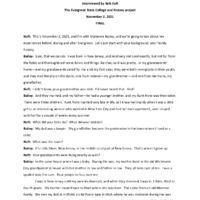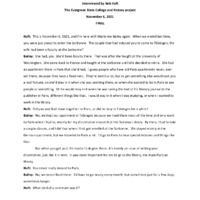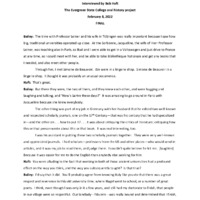Marianne Bailey Oral History Interview
Item
- Identifier
- Title
- Date
- Creator
- Contributor
-
BaileyMarianne
-
Marianne Bailey Oral History Interview
-
November 2, 2021
-
November 6, 2021
-
February 8, 2022
-
Marianne Bailey
-
Bob Haft
Position: 606 (8 views)


